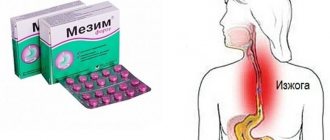It is rightly believed that during the treatment of hemorrhoids, special attention is paid to diet and normalization of nutrition, as well as digestive processes. Constipation from a disease-provoking factor can cause frequent exacerbations, so bowel retention should not be allowed.
The softness of feces ensures comfortable evacuation of feces from the intestines and prevents injury to the walls of the rectum. If diet alone cannot achieve the desired goal, the doctor may prescribe laxatives for hemorrhoids.
Why is it so important to normalize stool for hemorrhoids?
Probably every person has experienced difficulties with bowel movements in his life. And this is normal if the situation does not become frequent and painful. But if constipation is observed in a healthy person, this will not be such a negative factor as stool retention in a patient with hemorrhoids.
The occasional eruption of stool containing hardened, rocky feces forces a person to strain vigorously, and this straining leads to increased pressure in the pelvic veins, which only makes hemorrhoids worse.
Finally, hardened feces moving along the rectal canal can injure the mucous membrane, and this leads to bleeding. The thin venous membranes in the hemorrhoidal plexuses are injured. And how can we close our eyes to the fact that the patient is simply in pain when the stool is hard, and he also suffers from prolonged constipation.
It's simple: if bowel movements are regular, then the person goes to the toilet and spends no more than 7 minutes there (which is within the normal range of healthy bowel movements). He does not need to push and sit on the toilet for hours, only aggravating congestion in the pelvis.
Doctors advise normalizing stool with proper dietary nutrition, but if this is not enough, you will have to use a laxative for hemorrhoids.
Classification of laxative medications
All so-called laxative drugs of synthetic or natural origin are conventionally divided into several groups. The differentiation is based on the mechanism of action of the drug on the gastrointestinal tract and specifically on the lower segment of the intestine.
Laxative medications can be:
- Compositions with irritating properties. They irritate the nerve roots of the intestinal lining, which leads to increased peristalsis. How quickly a laxative works depends on the form of the drug product. For example, suppositories will work faster than tablets or drops;
- Osmotic agents. Their medicinal effect lies in the intestinal retention of fluid, which in itself softens and increases the volume of feces. Osmotic laxatives work very quickly, they are prescribed if it is necessary to quickly get rid of fecal impaction;
- Enteric fillers. These are natural compositions, the components of which absorb water and grow in size. The composition of such medications includes flax seeds, cellulose, and bran. And to increase the volume of such a product, you need to drink plenty of fluids throughout the day - about one and a half liters;
- Prebiotics. These medications contain active substances that increase the osmotic pressure in the intestinal cavity, and at the same time populate the digestive organs with beneficial microflora. Preparations containing lactulose are most effective.
There are many laxatives on the pharmacological market today, which have different ways of influencing intestinal function, as well as different reaction rates.
Laxatives for hemorrhoids and fissures are produced in different forms of medication - drops or syrup, pills, suppositories.
Drug treatment
Recommended remedies
Is it possible to take laxatives for hemorrhoids? Irritant medications are prescribed only when intestinal motility is weakened. Such medications begin to act 6 hours after administration. Osmotic medications are prescribed to retain fluid in the rectum, which helps soften and fluff up hard stool.
Probiotics are recommended to restore microflora and facilitate intestinal emptying.
The most effective medications prescribed for the treatment of hard stools.
Glycerin suppositories
Glycerin suppositories
The most effective, mild laxative, recommended for use for hemorrhoids. The main active component of glycerin suppositories is glycerin. After glycerin penetrates into the anorectal area, the substance begins to irritate rectal receptors, and hard feces soften. The drug is approved for use in forms of the pathological condition.
Among the contraindications noted: the presence of anal fissures, cancerous tumors, personal intolerance to a component of the drug composition, the patient’s body. Undesirable manifestations include inflammation in the mucous tissues of the rectum and diarrhea. Glycerin suppositories are not prohibited for women bearing children, nursing mothers and children. Despite the safe composition of the medication for constipation in hemorrhoids, its use is possible only after a medical examination, diagnosis and consultation.
Biscaodile
Biscaodil
A laxative medicine is recommended by proctologists if patients have hemorrhoids and anal fissures. Bisacodyl is a medicinal drug in the form of suppositories. The active substance, bisacodyl, is aimed at effectively softening hardened stool. The drug helps prevent. Undesirable absorption of salts and fluids to the intestines. At the same time, the product has a gentle effect on the intestinal walls, stimulating their peristalsis.
Contraindications for the use of the drug include: intestinal obstruction, inflammation in the abdominal cavity, problematic absorption of lactose and glucose, children under three years of age, strangulated hernia.
Forlax
Forlax
The drug in question belongs to the group of osmotic drugs. Forlax contains the main active component - macrogol. The product is available in powder form, so before use (internal use) it is recommended to dilute it in a glass of water.
Forlax has a mild and harmless laxative effect. Prescribed for hemorrhoidal constipation, as well as to facilitate bowel movements for patients with anal fissures and patients who have undergone surgery in the anorectal area. The duration of treatment to eliminate constipation with Forlax is 7-90 days with a dosage of one, sometimes 2 sachets per day.
The drug is prohibited for use by patients with intestinal obstruction, severe pain and lesions of the rectum. Adverse effects may include diarrhea, nausea, dermatitis, bloating, and allergies.
Duphalac
The drug in question belongs to the probiotic group. The medication is in the form of a suspension, which has a very gentle effect on the rectal organ. The medicinal composition is prescribed to patients with persistent constipation, anal fissures, acute and chronic hemorrhoidal pathology.
The product is also recommended for dysbacteriosis, and as an effective laxative after surgery on the rectal organ. The medication has virtually no side effects (sometimes diarrhea or an allergic reaction to the constituent substances may occur).
Weak
Slabilen contains sodium picolphate. The product is produced in the form of drops, recommended for stimulating the intestines with laxative effectiveness. The drug is recommended for use by patients with hemorrhoids, anal fissures, constipation, hemorrhoidal cones, as well as during the period before/after surgery. The drops help soften stool, speed up the movement of stool through the intestines, and facilitate easy bowel movements. Women during pregnancy and lactation are prescribed with caution.
Glycerin in suppositories
This is a laxative; its active ingredient is listed as glycerol. The main substance, in contact with the intestinal lining, irritates the nerve roots. Because of this, peristalsis increases and the evacuation of feces is stimulated.
In addition, glycerin softens the fecal bolus and reduces the pain of bowel movements.
Glycerin liners are indicated for:
- Constipation of any nature;
- Difficulty emptying the intestines due to hemorrhoids;
- Prevention of constipation due to varicose veins of the anorectal veins.
But contraindications are also worth mentioning. These include hypersensitivity to the components of the drug, which is expressed as an allergy. Also, you should not use glycerin suppositories during an exacerbation of hemorrhoids, with microcracks in the rectal structures and with an inflamed rectum. Tumors (of any nature) in the rectum are also considered a contraindication to taking these suppositories.
Doctors also warn that you should not use the medicinal composition very often to combat constipation. This is explained by a possible disruption of physiological bowel movement.
Causes of constipation
Constipation can occur for various reasons:
- Pain – in case of pain, the patient delays defecation, as he is afraid of a repetition of the pain syndrome as during the previous bowel movement (by postponing defecation until later, the feces harden even more).
- Effect of medications - Morphine, Codeine, Oxycodone can cause hard stools. Those drugs help slow peristalsis and increase sphincter tone with inhibition of defecation reflexes.
- Inactive life.
- Consequence of surgical interventions.
- Unbalanced diet.
- Drinking small amounts of liquid.
Can constipation be a consequence of hemorrhoids?
Constipation and hemorrhoids almost always complement each other. This is due to disruption of the gastrointestinal tract. Accumulated feces negatively affect blood circulation in the rectum and anus, which leads to the development of hemorrhoidal cones and difficult removal of feces, which leads to chronic constipation.
Can hemorrhoids be caused by constipation?
Due to strong pushing during defecation, intraperitoneal pressure is created, which can provoke inflammation of the hemorrhoidal vein. Constipation makes it difficult to remove feces; accumulated processed foods interfere with normal venous flow in the rectum and venous plexuses of the anal area, which leads to the development of varicose veins in the anorectal area (hemorrhoids).
Microclyster Microlax
You should ask your doctor if you can use a laxative for hemorrhoids, since some medications are indicated and others are prohibited. A relatively new form of laxative is Microlax microenema. This is a solution for rectal use, developed on the basis of sodium citrate and other components.
Sodium citrate is a substance that displaces the fluid contained in feces. Other sodium compounds in solution have the property of diluting digestive juice.
This medication acts quickly: the patient will notice a laxative effect within 15 minutes after using the drug.
Potential adverse reactions of Microlax include epigastric pain, slight discomfort around the anus, increased dilution of stool and allergies. The frequency of use is considered individually.
Traditionally, the solution is injected into the anus in an amount of 5 ml. It is impossible to use the composition for too long and/or too often, since there is a high risk of the intestines becoming accustomed to this method of stimulating bowel movements.
Normaze syrup
Another well-known lactulose-based laxative is Normaze. It is prescribed for chronic stool retention, as well as for difficulties with defecation due to varicose veins of the anal veins. For rectal bleeding, the medicine is not used. Syrup can be prescribed both as a laxative after hemorrhoid surgery, and as a composition that prepares the intestines for the upcoming operation.
But even syrup can cause unwanted side reactions: excessive gas formation and even vomiting. In rare cases, increased dilution of stool is observed. In this regard, Normaze syrup cannot be considered a mild laxative for hemorrhoids.
Folk remedies
After surgery for hemorrhoids, you can use a medicinal or folk laxative, that is, a remedy with a natural composition of plant or animal origin that thins the stool.
Some products have this property.:
- bay leaf: brew the infusion and drink 100 ml three times a day;
- senna leaf: brew with boiling water and take 200 ml in the morning for hemorrhoids to avoid constipation;
- kefir has a laxative effect, so for constipation it is recommended to drink it at night;
- castor oil (drink 1-3 tablespoons).
Why laxatives aren't always the best option
There is a certain category of patients who do not even think about revising their diet and immediately resort to laxatives. Of course, such a decision is far from prudent. The fact is that laxatives cannot be considered completely safe medicinal products.
What is the potential risk:
- Deficiency of nutrients and vitamins. If a bolus of food passes through the intestinal tract very quickly, the body does not have time to break down and further absorb vitamins and minerals in the required volume. This, of course, is unnecessary if hemorrhoids are aggravated by pancreatitis and other problems that aggravate the absorption of food;
- Malfunction of the intestines. If you regularly take a laxative, the innervation of the digestive system will be disrupted, which is why the person is unable to empty the intestines on their own;
- Electrolyte balance. If you take laxatives for a very long time, there is a high risk of sodium, potassium and calcium leaching. And if the content of these components is reduced, then disturbances in the functioning of internal organs may occur;
- Disturbed intestinal microflora. The digestive organs contain a large number of truly beneficial bacteria involved in digestion. They fight pathogens and perform a protective function. Some laxatives simply wash away this valuable flora, which causes digestion to worsen and immunity to decline;
- Kidney problems. With frequent bowel movements, fluid loss occurs and healthy kidney function is impaired. Because of this, toxic substances that remain in the body deform the kidney structures.
Finally, a passion for laxatives provokes addiction if the intestines “forget” the normal algorithm for evacuation of feces.
Effective laxatives
The pharmacological market offers a large selection of medications aimed at treating stool retention. However, in combination with hemorrhoids, treatment takes on an individual character. It is necessary to establish the primary cause of bowel movement, which is most often associated with disruption of the functioning of the entire digestive system.
| Medicinal action | Name |
| Medicines that act on the intestinal wall | · Diphenylmethane derivatives (isafenin, phenolphthalein, bisacodyl). |
· Surfactants (sodium and calcium dioctyl succinate).
· Anthraglycoside agents (senna, rhubarb, buckthorn).
· Castor oil.
· Oils - Vaseline or almond.
· Laxative salts (Glauber's salt or Carlsbad salt, etc.).
· Sugars and their derivatives (sorbitol, lacthiol).
· Lactulose (Duphalac and Normase).
· Extralact, multisorb, extra bifilact.
· Guttalax – disodium salt together with sorbitol.
· Laxative teas and decoctions.
· Softovak is a combination preparation of plant extracts.
· Agiolax – powder of seeds and shells of plantain seeds and senna fruits.











